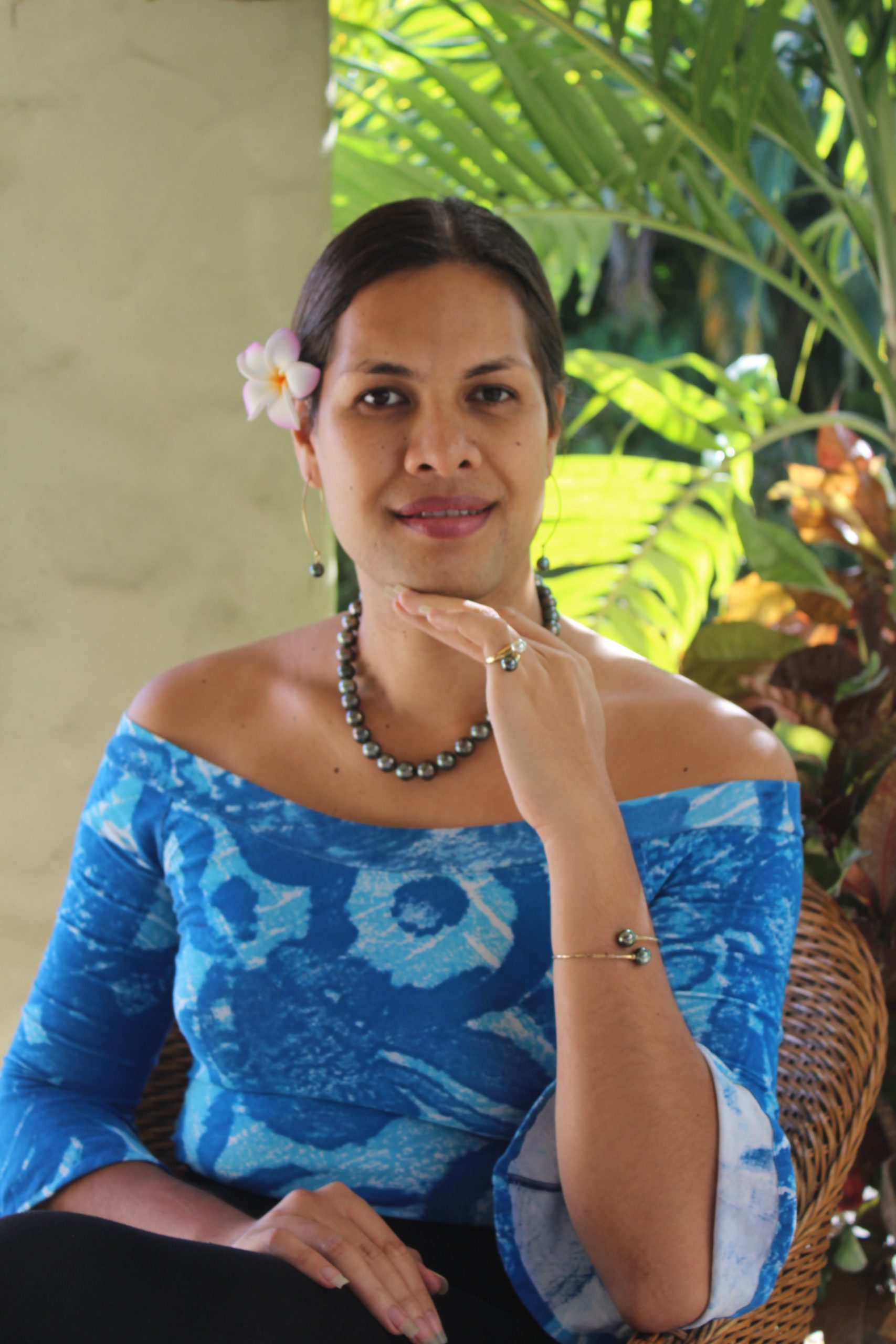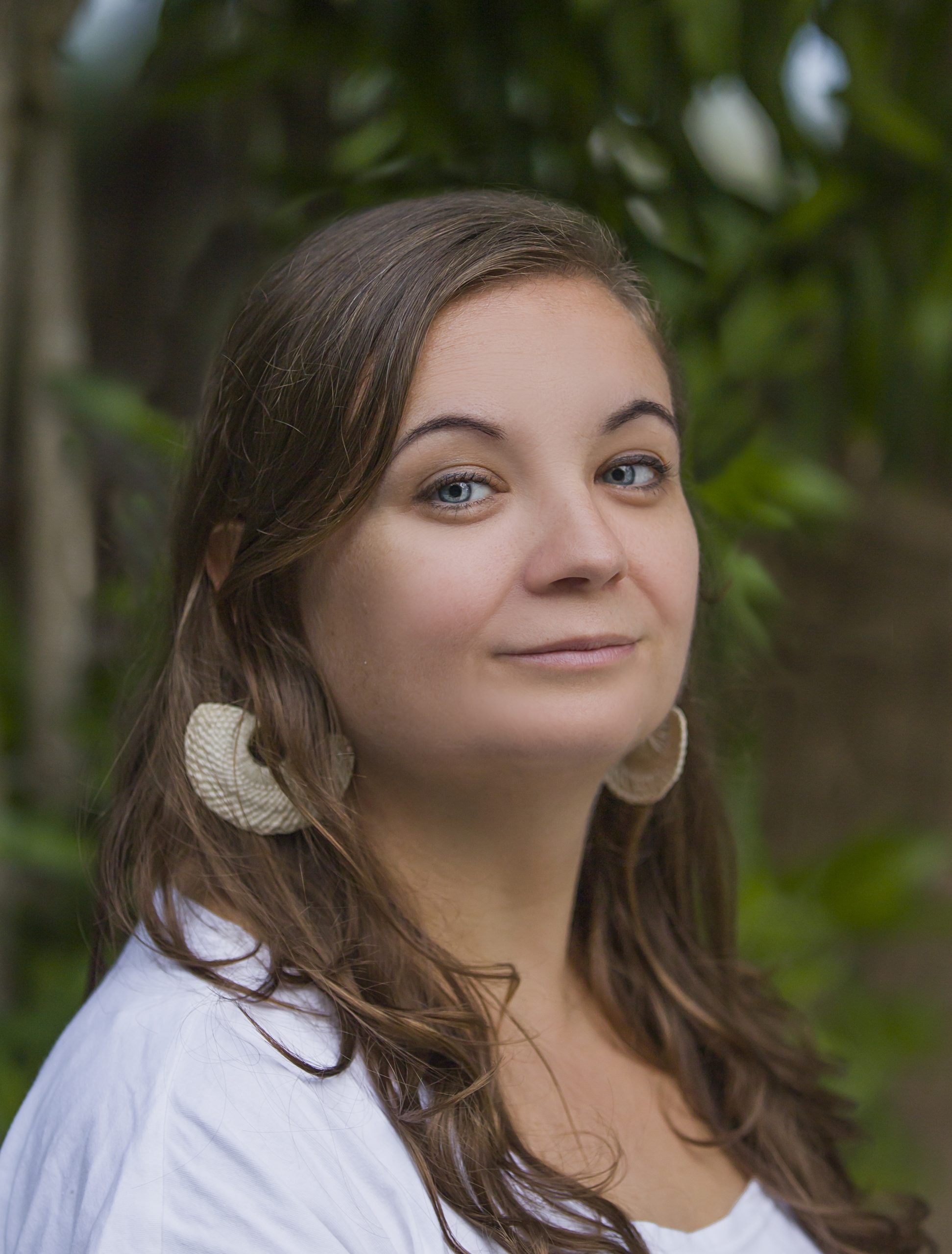Opinion: Decriminalisation of same-sex relations in Cook Islands
Tuesday 16 April 2024 | Written by Supplied | Published in Editorials, Opinion

Valery Wichman. Devpolicy/24041520
Cook Islands decriminalised same-sex relations a year ago, following a long and arduous journey that began around 2010. Valery Wichman and Hilary Gorman examine the origins of the criminalisation and its impact on the Cook Islands Ānuanua community.
On 14 April 2023, during the second reading of the Crimes (Sexual Offence) Amendment Bill 2023, Cook Islands Prime Minister Mark Brown, in this speech, said: “We are a free country, we have freedom of speech, we have freedom of expression, we have freedom to worship … We have freedom to love who we want to, we have freedom to be who we want to be. We all should have the right to live our lives free of discrimination. We say we are a people of love and respect. Today, we are doing our job as lawmakers. We will remove a discriminatory and unjust law that goes against our Constitution and our values as a Nation.”

Hilary Gorman. Devpolicy/24041519
His speech demonstrated support for the Cook Islands Ānuanua (rainbow) or LGBQTI+ (lesbian, gay, bisexual, queer, transgender and intersex) community. The governing Cook Islands Party voted as a bloc to support the bill, while support from other parties was mixed.
His speech also reinforced the separation of church and state: “This Bill is not intended to change the word of God or the Bible or the interpretation of homosexuality. In the eyes of God, it is still defined as a sin. The role of the Government is to protect our people and to protect our rights. We are the Government for all our people, not just the Government for some of our people and, as a government, we must protect the rights of all our people especially the minority in our community. It is not the job of government to tell people what their sexuality is. It is not the job of government to absolve sin, it is not the job of government to tell people how they can or cannot have sex. The Government does not have a place in the bedrooms of the people.”
The Prime Minister’s statement is significant for a nation that identifies as deeply Christian, with the church as a pillar of power in society. In the years preceding this legislative change there was a prevailing sense of moral panic as many people mistakenly thought the change entailed the legalisation of same-sex marriage, which was not the case.
When the Crimes Act 1969 was amended, changes were made to offer greater protection to victims of sexual violence and decriminalise consensual sexual activity between members of the same sex. Cook Islands became the ninth country in the Pacific to decriminalise same-sex relations.
The journey to decriminalisation of same-sex relations was long and arduous, commencing around 2010 when the first case of HIV was recorded. It was driven by civil society organisations (CSOs) dedicated to the promotion of sexual and reproductive health and human rights.
These advocacy efforts were widespread and took place over several years, spearheaded by the Cook Islands Family Welfare Association and driven by Te Tiare Association and Pride Cook Islands. They involved meeting with two select committees engaged in a review of the draft bill to amend the Crimes Act 1969, as well as engagement with individual politicians, traditional leaders, and church leaders. Campaigns were conducted via traditional and social media to educate people on the experiences of the Ānuanua community, and to convey messages of love, kindness, and acceptance.
The origins of criminalisation date back to draconian colonial laws inherited from New Zealand, which originated in the United Kingdom. Colonial law made the act of sodomy illegal. While there is no record of anyone being charged with the offence of sodomy, the Act has functioned as a threat to the Ānuanua community, perpetuating stigma and discrimination.
The Cook Islands Ānuanua community experiences both subtle and overt discrimination, and their experiences of acceptance vary. A study of gay men and transgender women found they felt generally but not fully accepted by their families and communities. Another study of sexuality education among youth confirmed that many LGBQTI+ youth experience social isolation. Qualitative research, which focused on the experiences of transgender women in the Cook Islands, Samoa, and Tonga, found that bullying, discrimination, and violence were common experiences, as was a sense of perseverance.
Like other Pacific nations, Cook Islands has a history of diverse gender identities and sexual orientations. Transgender Pacific islanders have been described as “both deeply embedded in the structure of society and marginal to it”. In 2020, an advocacy video aired on local television, jointly produced by Pride Cook Islands and Te Tiare Association, captured those sentiments. It featured members of the Ānuanua community highlighting their wide-ranging contributions to communities and society, along with a call for acceptance and to be recognised as law-abiding citizens.
Over the past year, public discourse about the decriminalisation of same-sex relations has settled. It has become clear to the community that the legislative changes do not permit same-sex marriage. While there are whispers of dissent about the passing of the Act, Cook Islands is in many ways an anomaly in the global context where we are seeing a backlash against LGBQTI+ rights and legal protections. It appears that the messages of CSOs are increasingly gaining traction, leading to a shift towards love and acceptance for the Ānuanua community.
- This article appeared first on Devpolicy Blog (devpolicy.org), from the Development Policy Centre at The Australian National University. Hilary Gorman is a PhD scholar in the Department of Pacific Affairs at the Australian National University, a development practitioner and consultant, and past executive member of Pride Cook Islands. Valery Wichman is the Chief Advisor of Te Tiare Association and was the lead advocate for decriminalisation in Cook Islands.














































